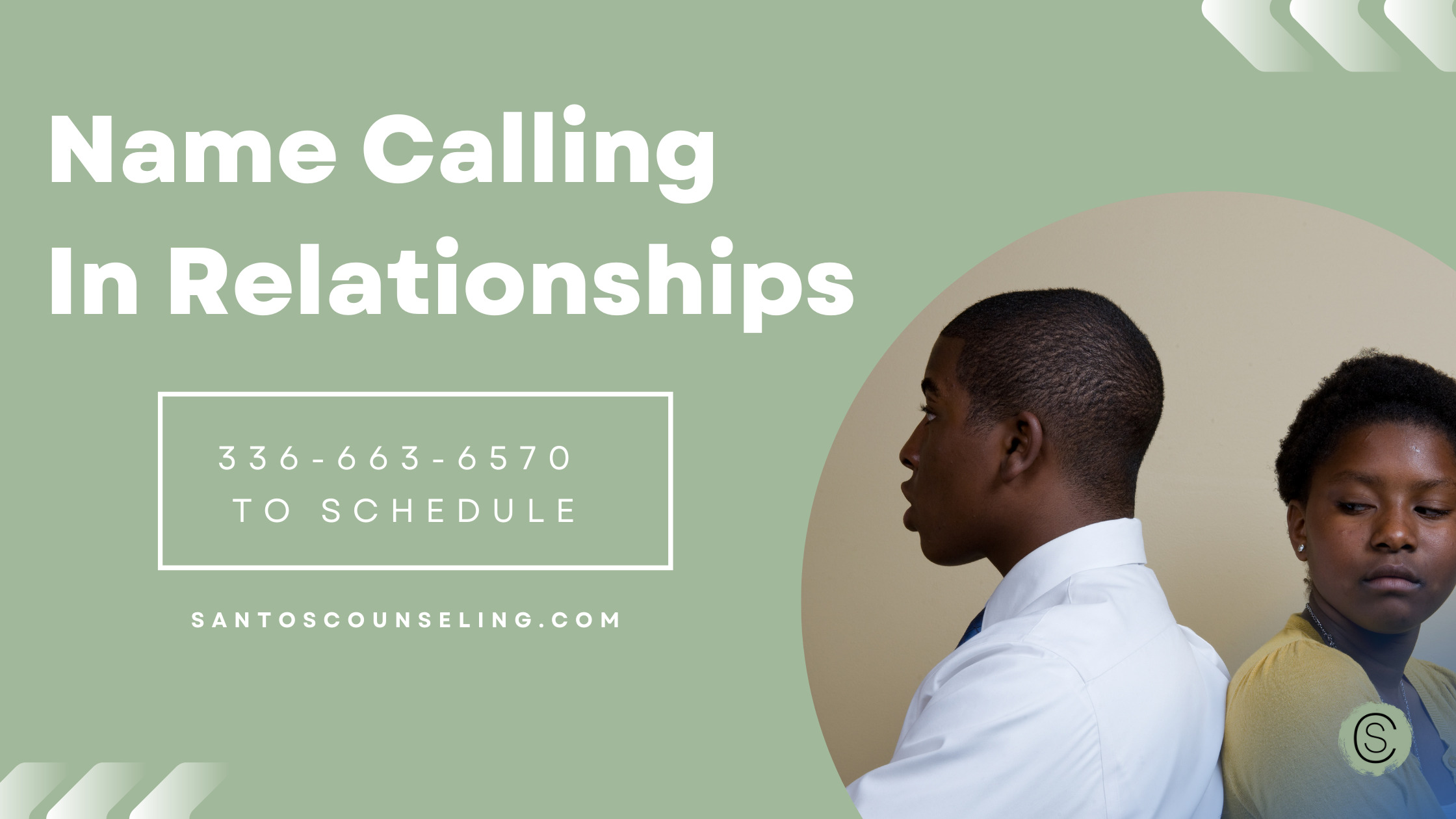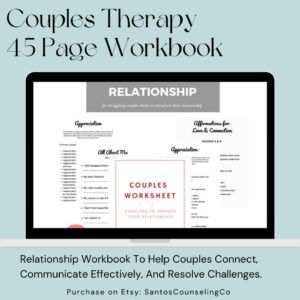Calling Names In A Relationship
I want you to think about one time in your relationship that name-calling has brought you and your partner together.
I assume that the answer is no.
Name-calling often leads to the following problems in a relationship:
- Conflict.
- Disrespect.
- Low self-esteem.
- Tension.
- Annoyance.
- Avoidance.
Couples often struggle with name-calling for varying reasons. One key reason is that in some ways they want their partner to feel the pain that they are going through. Another person may engage in name-calling based on their past experiences.
I once worked with a couple that found themselves saying some of the meanest things to each other. Together we learned how their childhood experiences and past relationships influenced their thoughts, behaviors, and manner of dealing with interactions. One of the partners shared how they grew up in a loud home. One in which they witnessed name-calling.
Common examples of name-calling in a relationship include:
- “You are selfish. It’s always about you and your feelings.”
- “Crazy, that’s what you are.”
- “Why do you keep bringing this up. Can’t you man up and stop being so pathetic.”
If you are ready to start relationship counseling reach out to Santos Counseling PLLC by clicking here.
Psychological effects of being yelled at in a relationship
The psychological effects of being yelled at in a relationship can be damaging to the relationship and your mental health. Long terms consequences can range from a gradual decrease in your self-esteem and self-confidence to replacing actual feelings with unhealthy remarks. Meaning that overtime you may begin to struggle with sharing your thoughts and feelings in a kind and respectful way. You instead share a loud projection of hurtful words.
The psychological effects of being yelled at in a relationship include:
- Increase stress.
- Trauma symptoms.
- Puts feelings under the rug and replaces them with hurtful words.
- Feeling abandoned.
- Walking on eggshells.
- Decrease in self-esteem and self-confidence.
- You feel belittled.
- Distressful flashbacks.
- Increase anxiety.
- Aggressive behaviors.
- Your partners way of controlling you.
- Increase in self-doubt.
How damaging is name-calling to a relationship?
Name-calling is extremely damaging to a relationship. One of the key goals when building a relationship is to foster a safe space. A space where you can walk freely, share your thoughts and feelings, discuss challenging topics, and be your authentic vulnerable self.
When couples engage in name-calling, they are hurting the foundation of the relationship. For some, this may not be apparent right away.
You may find yourself saying or receiving just a few negative remarks.
- “You are an asshole.”
- “You are never going to amount to anything.”
- “All you do is sleep.”
Name-calling is a slow poison to the relationship. Overtime, you may notice that you are less willing to share your deep thoughts with your partner. This simple shift creates space and begins that process of separation. You may live together while emotionally being in two different places.
Partners who experience name-calling often feel betrayed and alone. They share that they walk on eggshells and often do their best to hide their emotions by pretending that everything is okay.
Here is the key takeaway when it comes to name-calling.
Don’t do it.
If it is done, immediately stop the conversation with a code word. Click here or here to learn how using a code word can improve your relationship.





